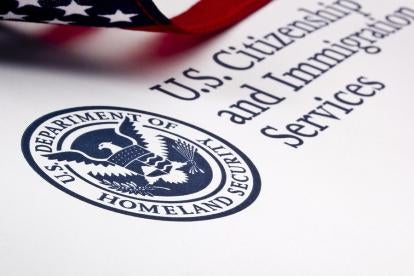


D.C. Circuit Court Along with Nine Other Circuit Courts Rules that USCIS Has Final Say in Visa Revocations
Tuesday, August 31, 2021
On July 20, the D.C. Circuit Court joined nine others to rule that visa revocations by the United States Citizenship and Immigration Services (“USCIS”) cannot be further reviewed by the courts.
The three-judge panel joined the First, Third, Fourth, Fifth, Sixth, Seventh, Eighth, Tenth, and Eleventh circuits in issuing this decision. The Second Circuit Court of Appeals has adopted a similar interpretation in the form of dicta (an unbinding decision). The Ninth Circuit is the only jurisdiction to hold that visa revocations are subject to judicial review.
Vermont-based immigration attorneys had filed a case against USCIS regarding iTech’s I-140, an immigrant visa petition filed in 2015 on behalf of an Indian citizen. USCIS initially approved the I-140, but later issued a Notice of Intent to Revoke (NOIR) in 2017. USCIS cited inconsistencies over the beneficiary’s educational qualifications and the wages to be paid by iTech.
iTech responded to the NOIR by providing further evidence clarifying the beneficiary’s educational qualifications and providing additional proof of iTech’s ability to pay. USCIS, still unconvinced, revoked iTech’s I-140. In August 2018, iTech filed a Motion to Reopen, which was denied by the USCIS later that year. iTech then sued USCIS in the federal district court for the District of Columbia, alleging that USCIS violated the Administrative Procedure Act by revoking the I-140 in an “arbitrary and capricious” manner. USCIS filed a motion to dismiss the case for lack of jurisdiction, claiming that their officers can revoke an I-140 petition at any time for any reason if good and sufficient cause is shown. The Federal Court granted USCIS a motion to dismiss.
iTech further appealed to the District Court of Columbia, arguing that only discretionary denials are insulated from judicial review, and revoking an I-140 does not fall within that classification. USCIS argued that their decisions are exempt from judicial review. The Court once again rejected iTech’s reading of the statute and upheld the USCIS’s interpretation, joining many other circuit courts in the United States.
©2024 Norris McLaughlin P.A., All Rights Reserved![]()
![]()
![]()

We collaborate with the world's leading lawyers to deliver news tailored for you. Sign Up to receive our free e-Newsbulletins
You are responsible for reading, understanding, and agreeing to the National Law Review's (NLR’s) and the National Law Forum LLC's Terms of Use and Privacy Policy before using the National Law Review website. The National Law Review is a free-to-use, no-log-in database of legal and business articles. The content and links on www.NatLawReview.com are intended for general information purposes only. Any legal analysis, legislative updates, or other content and links should not be construed as legal or professional advice or a substitute for such advice. No attorney-client or confidential relationship is formed by the transmission of information between you and the National Law Review website or any of the law firms, attorneys, or other professionals or organizations who include content on the National Law Review website. If you require legal or professional advice, kindly contact an attorney or other suitable professional advisor.
Some states have laws and ethical rules regarding solicitation and advertisement practices by attorneys and/or other professionals. The National Law Review is not a law firm nor is www.NatLawReview.com intended to be a referral service for attorneys and/or other professionals. The NLR does not wish, nor does it intend, to solicit the business of anyone or to refer anyone to an attorney or other professional. NLR does not answer legal questions nor will we refer you to an attorney or other professional if you request such information from us.
Under certain state laws, the following statements may be required on this website and we have included them in order to be in full compliance with these rules. The choice of a lawyer or other professional is an important decision and should not be based solely upon advertisements. Attorney Advertising Notice: Prior results do not guarantee a similar outcome. Statement in compliance with Texas Rules of Professional Conduct. Unless otherwise noted, attorneys are not certified by the Texas Board of Legal Specialization, nor can NLR attest to the accuracy of any notation of Legal Specialization or other Professional Credentials.
The National Law Review - National Law Forum LLC 2070 Green Bay Rd., Suite 178, Highland Park, IL 60035 Telephone (708) 357-3317 or toll-free (877) 357-3317. If you would like to contact us via email please click here.
Copyright ©2024 National Law Forum, LLC